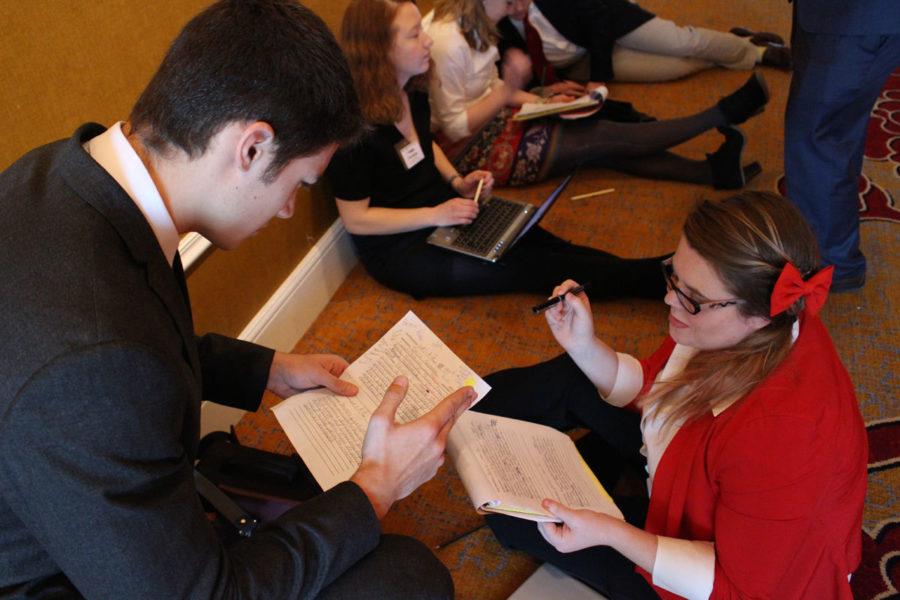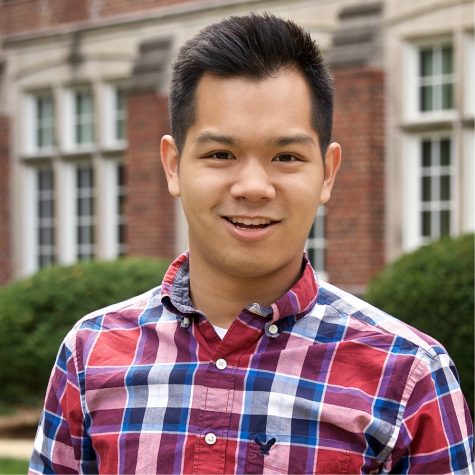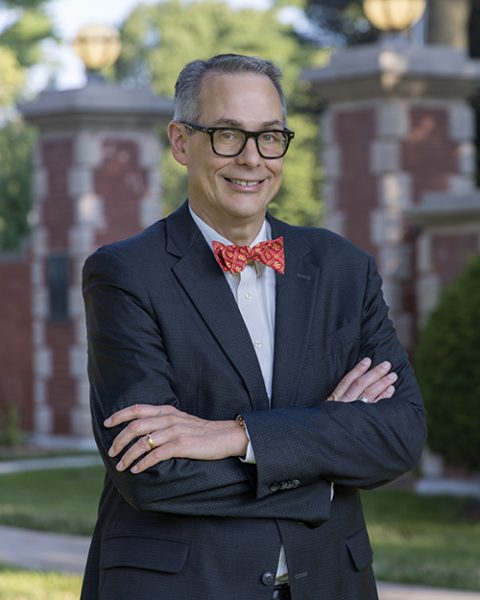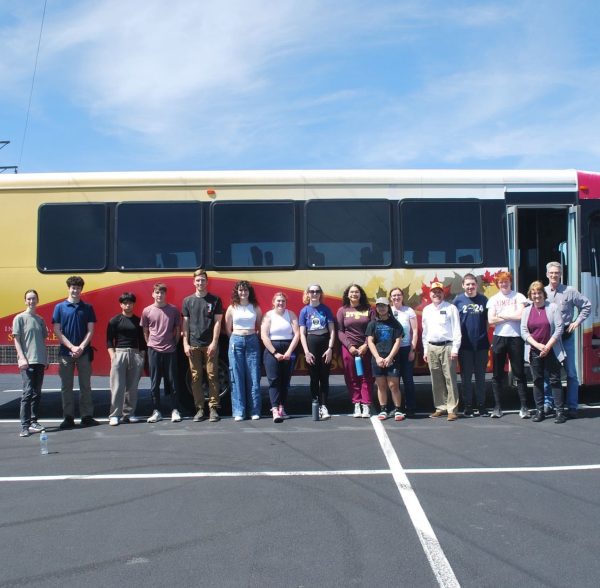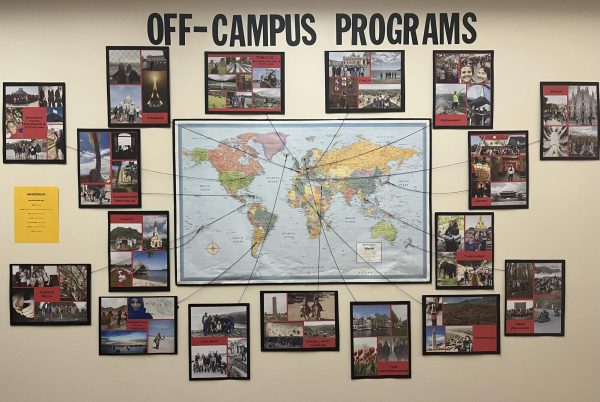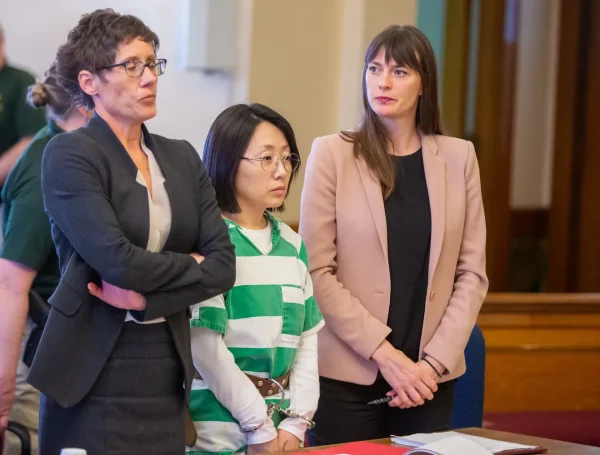Simpson Students Win Delegation Awards at MMUN Conference
February 24, 2015
ST. LOUIS—Simpson College students, accompanied by political science professor Eduardo Magalhães III, traveled to St. Louis for the 55th Annual Midwest Model United Nations (MMUN) Conference held at St. Louis Union Station Feb. 18-21.
MMUN is a simulation of the United Nations (U.N.) that is structured and designed to enhance students’ comprehension of pressing international issues from an outside perspective, thus broadening cultural awareness in international law.
With an attendance of 41 schools this year, Simpson sent 15 delegates representing Austria, the Democratic People’s Republic of Korea (North Korea) and the Oriental Republic of Uruguay.
Simpson delegates from Austria took home top honors in Delegation Awards for the General Assembly First Committee and the General Assembly Plenary. Members representing the European nation included freshmen Nick Laning, Alanna Wendt and Andrea Casaretto, as well as seniors Angela Phipps and Amy Frakes.
Offered as a one credit course (POSCI-130), preparation included research on committees, countries, topics and current events.
Through this simulation, students are encouraged to create strong diplomatic ties with allies in order to gain deeper understanding of international relations and its complexities.
Magalhães has attended this conference for the past 24 years and says students benefit greatly from the experience.
“They get the opportunity to work on their oral communication skills, work on their teamwork building, persuasion and compromise. The Midwest Model U.N. advertises itself as a ‘venture in practical education,’ and I think that’s a good way to summarize what Model U.N. is about,” he said.
“The key to a liberal arts education,” Magalhães noted, “is to develop the ability to understand where others are coming from… and coming to Midwest Model U.N. is the perfect way of achieving that.”
Magalhães said the first year he came to the conference his students represented Saudi Arabia and the topic concerned women’s rights while the delegates were coincidentally women.
“It’s not that you have to agree with Saudi Arabia’s stance on human rights or women’s rights, but you at least develop a sense of where it’s coming from, and I think that’s essential to understanding how to interact with people,” he said.
The process includes multiple four-hour long sessions dedicated to drafting resolutions, and later amendments, to be voted on by the body during voting procedure. Delegations are expected to caucus (recess to discuss topics) and form mergers with other delegations, while formal sessions are designated for speeches.
At the conference, a heated debate over nuclear weapons was inflicted by representatives Molly Monk, junior, and Angela De La Riva, sophomore, of North Korea, condemning a resolution that called for the “[prohibition of] the utilization of science and technology to increase the creation of Weapons of Mass Destruction (WMDs).”
In a speech given to the body of the First Committee, delegate Monk stirred up the pot in a polemicist approach.
“The DPRK is very proud of all the work that has been put in by the First Committee. However, much of this work stands in contradiction to the glorious vision for our nation laid out by our Supreme Leader,” Monk said.
“Nuclear weapons are critical for our national security, as they are for several nations. Given the recent U.S. actions that show the United States’ contempt for our culture and leadership, colloquially known as The Interview, we feel legitimately threatened. We want all our allies in the P5, Russia and China, to not disarm. We condemn [resolution] GA1-A-2,” Monk said.
In response, the delegation from Brazil called out North Korea and its supporters, citing them as “fascist” and, in turn, condemned the use of nuclear energy for purpose of weaponry.
Monk was particularly excited about representing North Korea, and her partner, De La Riva, agreed it was more invigorating to play the role of a pariah nation.
“I chose North Korea because I knew it would be a challenge. We all know they’re a little bit different than the typical American,” De La Riva said.
Each country provided a unique perspective on different topics, with North Korea being controversial in the realm of science technology due to its recent attack on Sony Entertainment and the development of a nuclear weapon in 2009, while withdrawing from the Nuclear Non-Proliferation Treaty (NPT) back in 2003.
North Korea also faces the probability of possessing chemical and/or biological weapons capability.
Uruguay, largely agriculture, faced more problems in socio-economic and humanitarian areas, thus largely exerting its influence in the International Fund for Agricultural Development (IFAD) committee which dealt with “hunger, food and nutrition security in the post-2015 development framework.”
Nick Laning was the head delegate for the country of Austria. He says the European Union made valiant efforts to stop particular resolutions, but they were ultimately passed by a majority.
“Austria worked on trying to ban nuclear energy then added a resolution to end nuclear technology from being transferred to non-state actors,” he said.
“They worked in correlation to oppose a clause in the third committee’s resolution that was going to expand the International Criminal Court (ICC) and the International Court of Justice (ICJ),” Laning said.
Other topics discussed included the eradication of poverty, human rights, universal jurisdiction and international strategies for disaster reduction.
Kay Fee, sophomore, represented Uruguay and said, “I went to Model UN because I knew it would refute or affirm any aspirations of the possibility of joining the United Nations in the future… and it looks good on a résumé.”
Fee said the rapidity of the conference was sometimes overwhelming; however, she caught on to the formalities and procedures of the U.N. Overall, she considered MMUN a good learning experience.
For De La Riva, the conference is something she would recommend as it hones skills that are useful in everyday life.
“I learned that it’s very important to solidify your [ideas] early on in the process but also be willing to comprise in the end,” she said.
The next MMUN conference is scheduled for Feb. 10-13, 2016. Simpson will send delegates representing Democratic People’s Republic of Korea, Israel, Colombia and Luxembourg for the Security Council.



